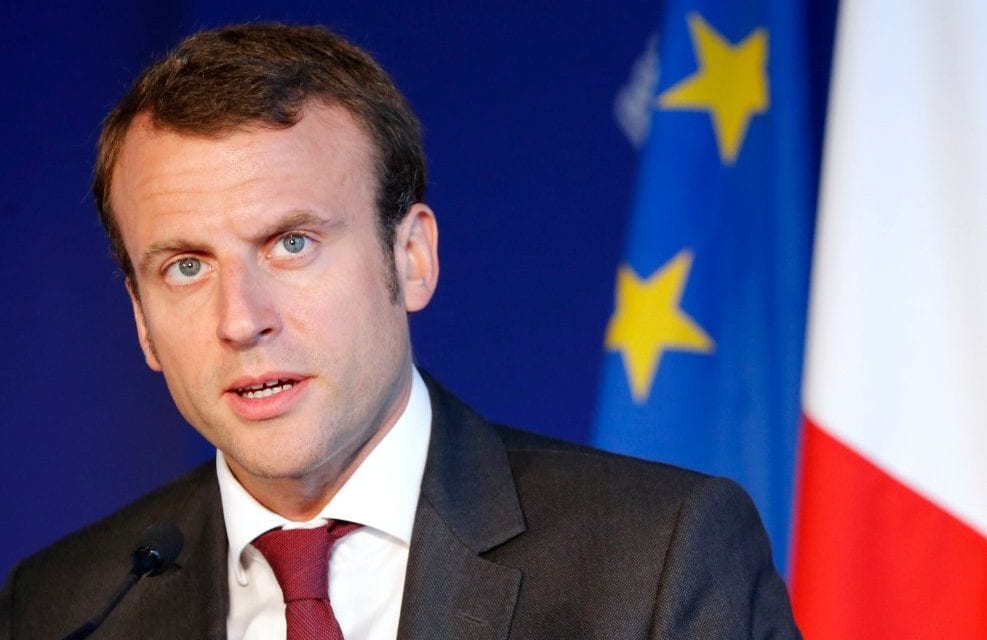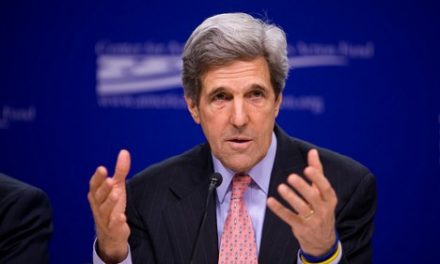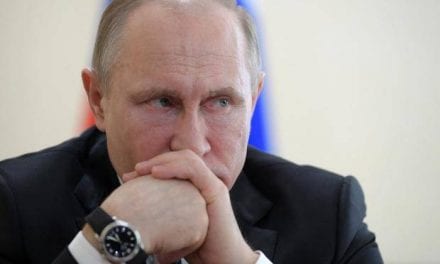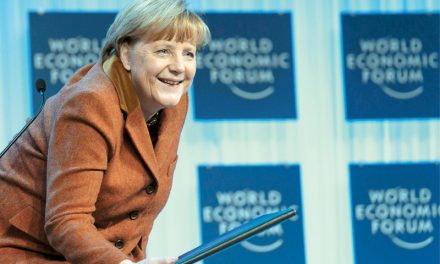By AMEinfo.com
Independent centrist candidate Emmanuel Macron has won the French presidential election, beating his far-right rival Marine Le Pen.
The former Socialist economy minister, 39, won by an estimated 65 per cent to 35 per cent on Sunday night to become France’s youngest-ever president.
Macron said that a new page was being turned in the French history.
“I want it to be a page of hope and renewed trust,” he said.
Decisive election
Citizens of France went to the polls in April and May to vote in one of the most decisive European elections of 2017. France’s vote for a new president is a crucial event for the future of European integration, and by correlation, European relations with the Middle East.
One-time investment banker Macron, who was unknown three years ago, left former president François Hollande’s Socialist government in August and formed En Marche, a political movement he says is neither of the left or the right, and which has attracted 250,000 members.
He has stated that he would not adopt any new measures on terrorism and is promising to lift the state of emergency and reinforce community policing. On the other side of the political spectrum, National Front’s Marine Le Pen wanted to take France out of the European Union and restore the franc.
Macron wants to push market and labour reforms to make France more competitive and deepen its ties to the European Union. He said in his victory speech: “I will defend Europe; it is our civilisation which is at stake…I will work to rebuild ties between Europe and its citizens.”
Macron’s victory in France has marked an end of far-right populism which had gripped the western world over the past year and lead to the Brexit vote and Donald Trump’s victory in the US presidential elections.
Aziz Kamel, a French-Lebanese art director based in Dubai told AMEinfo: “La Pen’s victory would have been catastrophic. The French are very open-minded people and I am not surprised at the results of the election.”
La Pen’s real triumph
Marine Le Pen’s performance maintained her record of improving the National Front’s score in every election since she became leader in 2011. She conceded the race in Paris: “The National Front … must deeply renew itself in order to rise to the historic opportunity and meet the French people’s expectations,” vowing to make her party the primary opposition to Macron in what she called a battle between “patriots” and “globalists.”
With an estimated 35 per cent of the vote, she earned the party its biggest-ever vote share in a presidential election. Le Pen has set the National Front up for potentially unprecedented victories in the French parliamentary elections next month, and perhaps bigger ones in the months and years to come.
La Pen had a tough stance on immigration along with a series of measures to tackle the terrorist threat, including removing French nationality from dual citizens, restoring military service and maintaining the controversial state of emergency declared by Hollande’s Socialist government in the wake of the November 2015 attacks in Paris.
She had also promised to reduce net immigration to 10,000 people a year, crack down on outsourcing by multinationals and lower the retirement age.
Marine Le Pen’s victory in the May elections would have influenced the balance of powers in the Middle East and add weight to Russia and Iran’s support for maintaining Bashar Al Assad in power, as evidenced by Le Pen’s recent declaration that Al Assad is a safer option for Syrians than Islamist movements.
However, it is still unclear whether the election will have a major impact on France’s business relations with countries in the Middle East. But financial experts are using the French vote to estimate the strength of the populist tide that led to Brexit and Donald J. Trump to become President of the United States, both of which had a massive impact on the global economy and investment trends.
UAE tops Middle East investments in France
The MENA region has a vested interest in the political happenings in France because of its many investments in the country.
Business France, the national agency supporting the international development of the French economy highlighted the results of foreign investment decisions in France and their contribution to the French economy in its 2016 Annual Report of Foreign Investment in France.
The UAE accounted for 34 per cent of Middle East investments in 2016, while Lebanon and Qatar each accounted for 18 per cent.
More than half (55 per cent) of these projects were first-time investments, while there were also investments in business services and consumer services.
In 2016, investments by Middle Eastern companies were made in a variety of sectors, including software and it services, hospitality, transport and agri-food.
Last year, 1,117 investment decisions created or maintained 30 108 jobs (962 decisions and 33 682 jobs in 2015).
With an average of 21 decisions made every week, 2016 saw a 16 per cent increase which sets a record in ten years.
From the Middle East, 11 new investment projects were recorded creating or maintaining nearly a hundred jobs.
France is counting 380 companies from the Middle East operating in France, where they employ more than 24,000 people.
Marc Cagnard, Middle East Director at Business France stated: “In 2016, 36 per cent of Middle East investments in France were made in Ile de France, Paris region. On the eleven investment decisions we listed from the Middle East, the main investor remains the UAE followed by Lebanon and Qatar.
“These results do not include the significant financial flows invested by Gulf Sovereign Wealth Funds which have been investing traditionally in France. Among Middle Eastern companies operating from France, 59 are listed in the Forbes 2000 annual ranking.”
Germany is investing in French industry
France remains a leading destination for investors, EU countries were top investors in France (60 per cent of total investments), followed by North American (20 per cent) and Asian countries (unchanged at 12 per cent, with Japan in the lead).
German companies were the leading investors in France for the first time (17 per cent vs. 15 per cent in 2015), with main investments in the field of industry. American companies follow and amount to 25 per cent of R&D activities.
Japan leads Asian investments in France
Italian investments amount to 13 per cent of investments and are focused on the industry. Japan is leading investor among Asian countries.
Germany and Italy remain the most active countries among foreign investors with respective increases of 35 per cent and 68 per cent in investment projects compared to 2015, and together amounting to one-third of foreign investment in 2016.
France remains the preferred European export hub thanks to its key geographical location and excellent transport infrastructure. The majority of foreign companies (80 per cent) have expressed a distinct preference for France as an export platform.
It will be interesting to note the effect Macron’s victory has on the French economy and its trade relations with the rest of the world. But major changes are not expected in terms of investment ties between the EU and the Middle East.



















